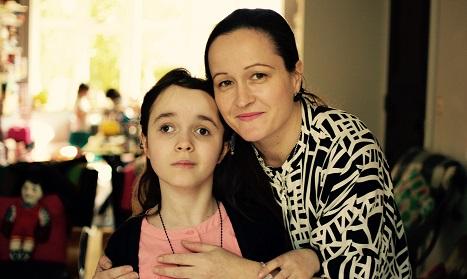
Published on: 21/06/18
The Brain Injury Hub headed to yesterday’s conference The Rubik’s Cube of Childhood Brain Injury. Here’s what we learnt...

Published on: 21/06/18
The Rubik’s Cube of Childhood Brain Injury conference by The Children’s Trust (supported by Irwin Mitchell) had a largely professional audience but many issues and tips raised were also relevant to parents and teachers.
First on stage was Victoria, mum of Coco, who had a stroke at the age of six. Victoria explained what happened on the day of the stroke and the treatment before talking about family life now (Coco’s full story will be on the Brain Injury Hub very soon).
One comment about Coco that will resonate with parents was: “She’s very independent at home but take her to a playground and her difficulties become apparent. We’re trying to lead as normal a life as possible as we can for Coco.”
Victoria also explained that she always has a party on the anniversary of Coco’s stroke to celebrate how far Coco has come since that day.
She said: “We have a lovely coming together of all our friends and people who supported us. We have rainbow cake and friends come over.”
One issue covered in several presentations was the lack of awareness of childhood stroke.
Dr Vijeya Ganesan, Paediatric Neurologist at Great Ormond Street Hospital said: “Stroke is really seen as an emergency in adults so this is what we need to see for children. FAST is a really significant sign in a child as well as an adult.”
Resources from The Stroke Association were referred to in a presentation – and recently we caught up with Anna Panton the organisation’s Childhood Stroke Project Manager for a quick Q&A on childhood stroke.
Presentations continued throughout the afternoon with Katy James, Head of the Brain Injury Community Service (which is run by The Children’s Trust), explaining how this service works.
Katy stressed the importance of brain injury education and explained how a lack of awareness and understanding by others can reduce participation.
Comments included a reminder that: “ABI is a dynamic not a static condition and needs change over time”. She added: “The long term consequences remain poorly understood – particularly for mild ABI.”
The wide range of speakers covered several subjects but ending the day was Dr Lucia Braga from Brazil, who heads The SARAH Network of Rehabilitation Hospitals, of which there are nine (all in Brazil).
The rehab there is described as ‘evidenced-based, life-long ecological neurorehabilitation’. It considers ‘not just the child today, but also in the future’.
The approach gives the family a vital role in the rehabilitation process and Dr Lucia Braga said: “Empower the family through knowledge as active participants.”
Lucia explained the strategies used including parents learning rehabilitation activities with the professional team; running meaningful activities; goal management training; cooperative learning; and working with children’s potential and abilities to increase their self-esteem.
The day was deemed a great success by those who attended and here at the Brain Injury Hub we’re already looking forward to next year!